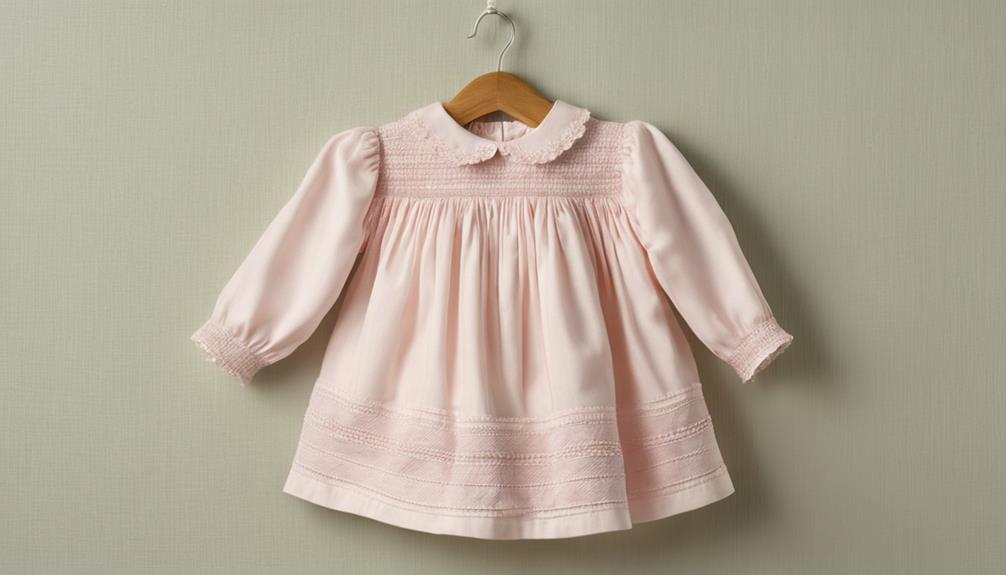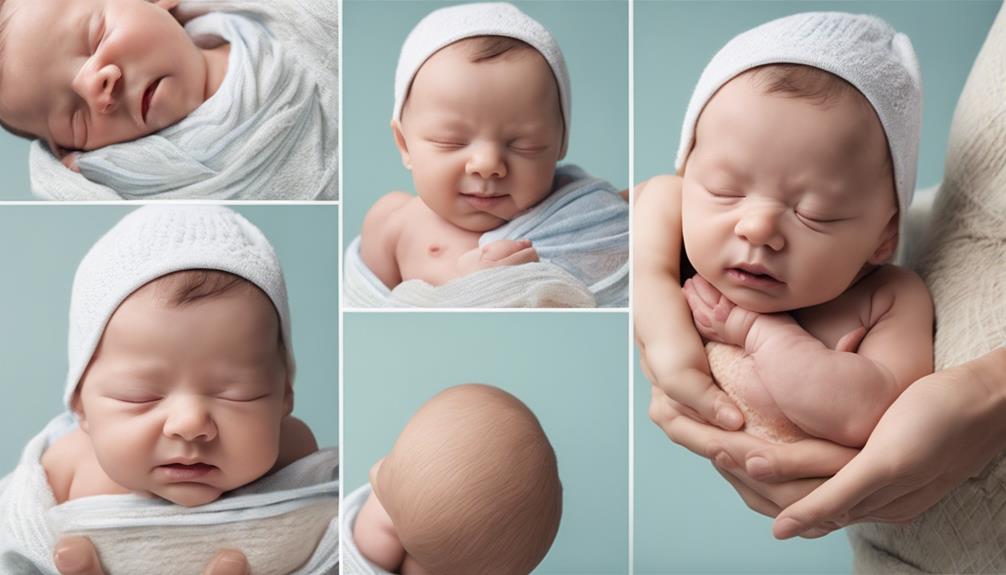In our journey to understand the intricacies of nurturing African American newborn hair, we discover vital routines that encourage robust growth and upkeep.
Understanding the unique needs of black and biracial infants' hair requires a delicate touch and specialized care routines. From gentle washing techniques to selecting the right moisturizing products, each step plays a vital role in nurturing their beautiful curls and coils.
But what about the lesser-known tips and tricks that can make a significant difference in your baby's hair care routine?
Key Takeaways
- Select appropriate products for delicate newborn hair.
- Establish a gentle detangling routine for hair health.
- Use mild, sulfate-free shampoo once a week.
- Incorporate natural oils for hydration and scalp care.
Understanding African American Newborn Hair
Upon welcoming an African American newborn into the world, it's important to grasp the nuances of their unique hair characteristics. African American newborns can have a range of hair textures at birth, from curly to tightly coiled. Their delicate hair requires vital care to prevent damage and breakage. Understanding these characteristics is essential for selecting the right products and care routines.
To promote healthy hair growth, moisturizing products are vital. Establishing a gentle detangling routine early on can help prevent knots and tangles. Creating a consistent hair care routine tailored to your African American newborn's needs will set the foundation for their hair health. By using appropriate moisturizing products and gentle techniques from the start, you can nurture their hair and support its natural growth.
Washing and Cleansing Tips

As we care for our African American newborn's hair, understanding the importance of proper washing and cleansing techniques is key to maintaining its health and texture. It's recommended to wash your black baby's hair once a week using mild baby shampoo to avoid stripping away natural oils. Overwashing can result in dry, brittle, and frizzy hair, so establishing a consistent washing routine is vital.
Opt for sulfate-free shampoos to prevent stripping the natural oils from your little one's delicate hair. For babies of mixed heritage, washing their hair twice a week may be necessary to guarantee cleanliness and health. When washing, gently massage the scalp with your fingertips and use a wide-tooth comb to detangle curly hair while the conditioner is still in. Consider using natural products to cleanse your baby's hair gently.
Combing and Detangling Techniques
When detangling your African American newborn's hair, using a wide-tooth comb or soft bristle brush on wet hair is essential to prevent breakage and maintain hair health. Here are some tips to help you detangle your baby's natural hair with care:
- Handle with Gentleness: Treat your baby's delicate hair with the utmost care to prevent breakage and ensure healthy growth.
- Detangle When Wet: Moisturize your baby's hair and detangle it while wet to minimize damage and prevent breakage.
- Avoid Tight Styles: Refrain from using styles that tug or pull on the hair, as this can lead to unnecessary stress on the hair follicles.
- Maintain Curl Pattern: Detangle curly hair gently with your fingers to retain the natural curl pattern and avoid disrupting the texture.
Moisturizing and Hydrating Essentials

To guarantee maximum moisture and hydration for your African American newborn's hair, incorporating natural oils such as coconut oil, shea butter, or jojoba oil is essential. These natural products are excellent moisturizers that can hydrate and nourish your baby's delicate hair and scalp. Regular use of these oils helps prevent dryness, breakage, and scalp issues, ensuring your baby's hair remains healthy and manageable.
Avoid mineral oil or petroleum-based products as they can clog pores and hinder moisture absorption in your baby's hair. Opt for hydrating essentials like leave-in conditioners or hair creams with natural ingredients to further protect and nourish your baby's hair. Consistent hydration is key to maintaining soft, healthy hair for your African American newborn.
Scalp Care and Styling Advice
For ideal care and styling of your African American newborn's hair, focusing on their scalp health is paramount. When it comes to scalp care and styling advice, here are some essential tips to guarantee your baby's hair stays healthy and beautiful:
- Use Natural Products: Opt for natural oils like virgin coconut oil or olive oil to massage your baby's scalp gently. These oils promote circulation and prevent dryness, keeping the scalp nourished.
- Avoid Harsh Chemicals: Steer clear of harsh chemicals and heavy styling products that can harm your baby's delicate scalp. Stick to gentle, natural products to maintain softness and health.
- Choose the Right Tools: Use a soft bristle brush or your fingers to style your baby's hair. Avoid tight hairstyles that can cause tension and breakage, opting for gentle care to keep the scalp happy.
- Regular Check-Ups: Regularly inspect your baby's scalp for any signs of irritation, dryness, or cradle cap. Address these issues promptly with gentle care to confirm your baby's textured hair remains healthy and vibrant.
Frequently Asked Questions
What Can I Put on My Black Newborn's Hair?
We should use natural oils like coconut, jojoba, sweet almond, or olive oil on our Black newborn's hair. Avoid harsh chemicals that can dry or damage their delicate hair. Consider satin pillowcases to reduce friction and prevent bald spots.
How Do You Take Care of Newborn Hair?
We gently cleanse and moisturize newborn hair with natural oils like coconut, jojoba, and sweet almond oil. Harsh chemicals are avoided to protect delicate strands. Using a satin pillowcase can reduce friction and prevent bald spots.
Should I Put Anything in My Newborns Hair?
We believe it's best to avoid heavy or greasy products in your newborn's hair. Opt for natural oils like coconut, jojoba, or almond oil for gentle moisturizing. Keeping their hair care routine simple and minimal is key to avoiding scalp irritation.
When Can I Start Using Products on My Newborn Hair?
We should wait until our newborn shows visible hair growth before using any products. Starting early might irritate their sensitive scalp. It's best to follow pediatrician advice and introduce minimal ingredients gradually for healthy hair growth.
Conclusion
As we wrap up our Essential African American Newborn Hair Care Guide, we hope you feel empowered and equipped to care for your little one's precious locks.
Remember, gentle love and attention are the keys to maintaining healthy and beautiful hair.
Embrace the journey of learning and nurturing your baby's unique hair needs, and watch them shine with confidence and beauty.
Thank you for joining us on this important hair care journey.










